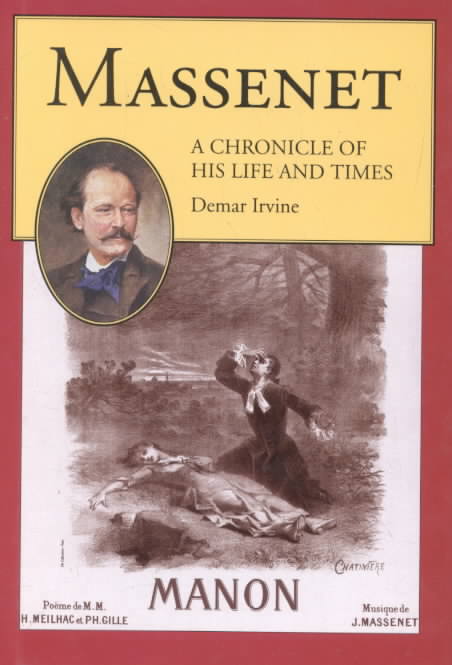| | Definition: | |  Massenet
This is a meticulously researched and superbly detailed biography of composer Jules Massenet, a musical prodigy who entered the Paris Conservatory at the age of ten in 1853 and was at the heart of Parisian musical life until his death in 1912. During his lifetime Massenet was one of the best known and most highly regarded musicians in all Europe. Although his works fell out of vogue for several decades after his death, the 1970s and 80s brought a renewal of interest in his work and a welcome series of new performances. Relying on primary sources for firsthand information, Irvine profiles the composer and draws a rich portrait of the fascinating era in which Massenet lived. The narrative begins in 1748 with the birth of Massenet`s grandfather, details the composer`s early years and family life, traces his educational career, and highlights important events in his life. This carefully documented biography of Massenet and his milieu is lively and readable, conveying a vivid sense of the life of a successful musician in the late nineteenth century. Along the way one meets numerous composers, conductors, singers, publishers, artists, writers, and critics - everyone who contributed to the exciting cultural ferment of the time. Massenet`s Paris was the city of expositions, a magnet for artistic talent and innovative ideas. As Massenet composed his first operas, Cezanne, Degas, Monet, Renoir, and their compatriots were unveiling the new Impressionism; Bizet, Faure, Wagner, Offenbach, Debussy, and Saint-Saens were his musical contemporaries. Great operatic performers such as Sibyl Sanderson, Emma Calve, Mary Garden, Geraldine Farrar, and Feodor Chaliapin were eager to star in the premier of anynew work by Massenet. The composer had many eminent students, including Gustave Charpentier, Lucien Hillemacher, and Reynaldo Hahn. In this period of extraordinary artistic vitality, Massenet was applauded by his arch-rival Saint-Saens as a sparkling diamond of French music. Alfred B more details ... |